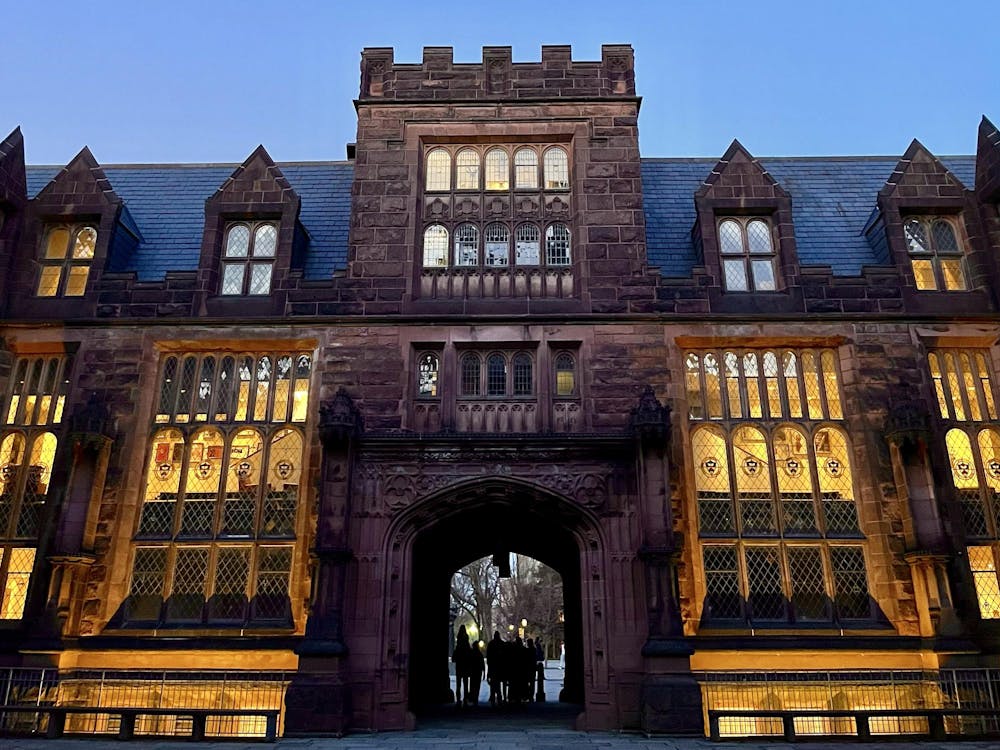Though Princeton does not have a law school, Princetonians have Sonia Sotomayor ’76, Elena Kagan ’81 and Samuel Alito ’72 currently in the Supreme Court as examples of those who successfully made it into the world of law. Yet, according to Princeton University’s Career Services, only 10.6 percent of students from 2011-12 who went to graduate school went to law school. That amounts to 27 people. The number is curiously low, though it reflects a national decrease in the number of people who attend law school. The law profession is relevant, but aging rapidly, and the room being created for young talent is expanding. There has not been a better time to go to law school in recent memory.
Professions in law have long been held in high esteem. There will always be a need for talented and dedicated law professionals. But the numbers show that fewer students are being drawn to these professions. There has been a distinct and ongoing trend in the past decade of declining law school admissions. According to University of Chicago law professor Brian Leiter, law schools are now down 18.9 percent in total applicants and 22 percent in total applications for the 2013 admissions cycle. This year, 39,351 people have applied to law school, and at the current pace, American law schools can expect to see fewer than 55,000 applicants this cycle. Nationwide, 140 law schools are down by over 20 percent in applications; 73 are down over 30 percent. There are many bloggers and vocal academics who are interested in the recent drop in applicants, but what is additionally fascinating is the longer term trend of law school application decline: With the exception of two years (2009 and 2010), the number of law school applicants has dropped every year since a high of 100,600 in 2004. Since Princeton students tend to have the focus, resolve and problem-solving skills to successfully make it in the world of law, perhaps 2013 can be the year that starts the reversal of the trend.
Additionally, the number of people taking the LSATs is rapidly falling. The quality of the applicant pool is also decreasing; fewer qualified people are choosing to go into law. One cause of this could be the dearth of opportunities that exist for those who have completed the arduous and expensive process of going through law school. The places that lawyers tend to find employment are decreasing. Law firms are generally downsizing, and spaces in academia are few and far between. It is perhaps the lack of jobs that creates a lack of law school applicants, which in turn causes the law schools themselves to consolidate or close down entirely. The opportunity for the interested and dedicated few to revitalize the system seems to now.
The whole economics of law has changed since the 1980s, which aids us in understanding the current trend. According to professor Paul F. Campos of the University of Colorado, in 1989, legal services accounted for approximately $157 billion (in 2005 dollars) of the U.S. Gross Domestic Product. In 2011, that same figure (again in 2005 dollars) was $156 billion. Campos explains that over the same time period, GDP increased by over 68 percent in constant dollars, which means that, as a share of the economy, the legal sector shrank by approximately 41 percent over the past two decades. At the same time that this has been happening, law schools have increased the number who graduate by nearly 24 percent. The cost of private law school tuition has doubled in real terms, and that of in-state public law school tuition increased by a factor of nearly five. In other words, the price and supply of the law licenses have increased significantly while the relative economic value has been collapsing. The quality of applicants, and therefore graduates of J.D.-granting institutions, has taken a hit. Princeton students tend to be of the caliber that would revamp the increasingly bad output of law schools.
In the simultaneous shrinking of the legal sector and law-training programs perhaps there is opportunity. In this seeming crisis it might be the right time for the right people to get into an important profession. Princeton does not itself have a law school, but graduates of Princeton are equally capable of getting into law and ending up as practicing lawyers. Perhaps now is the time. Smart, dedicated people can take advantage of a lapse in law school applications to revitalize this profession. There seems to be tremendous excitement at Princeton to enter the world of finance, and some are even interested in medicine, academia, politics and art, but there is a shocking lack of interest (at least observed by me) in going into jurisprudence. If one were to try and exploit a space that is lacking in the market, to fill a somewhat neglected niche, the law seems to be a good option, or at least one that ought to be explored. Total jobs are fewer than they were in 2004, but the space for highly qualified lawyers is expanding.
Aaron Applbaum is a Wilson School major from Oakland, Calif. He can be reached at applbaum@princeton.edu.







